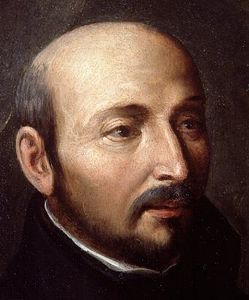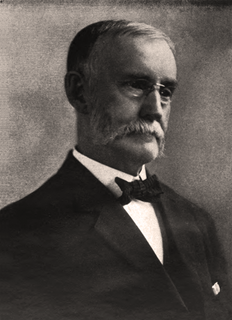A Quote by Ignatius of Loyola
God gives each one of us sufficient grace ever to know His holy will, and to do it fully.
Related Quotes
This is the amazing story of God’s grace. God saves us by His grace and transforms us more and more into the likeness of His Son by His grace. In all our trials and afflictions, He sustains and strengthens us by His grace. He calls us by grace to perform our own unique function within the Body of Christ. Then, again by grace, He gives to each of us the spiritual gifts necessary to fulfill our calling. As we serve Him, He makes that service acceptable to Himself by grace, and then rewards us a hundredfold by grace.
Only when we see that the way of God's law is absolutely inflexible will we see that God's grace is absolutely indispensable. A high view of the law reminds us that God accepts us on the basis of Christ's perfection, not our progress. Grace, properly understood, is the movement of a holy God toward an unholy people. He doesn't cheapen the law or ease its requirements. He fulfills them in his Son, who then gives his righteousness to us. That's the gospel. Pure and simple.
Loving a holy God is beyond our moral power. The only kind of God we can love by our sinful nature is an unholy god, an idol made by our own hands. Unless we are born of the Spirit of God, unless God sheds His holy love in our hearts, unless He stoops in His grace to change our hearts, we will not love Him... To love a holy God requires grace, grace strong enough to pierce our hardened hearts and awaken our moribund souls.
The Holy Spirit, in the variety of his gifts, unites us and enables us to contribute to the building up of the Church in holiness. In this great work, each of us has a part to play; each of us, as a "living stone", is needed for the growth and the beauty of God's holy temple. Let us ask the Lord to help us to take an ever more active part in the Church's life and mission, guided by the Holy Spirit and with Jesus as our cornerstone.
What each of us longs for the most is to be both fully known and fully loved. Miraculously, God feels the same way about us. God, too, wants to be fully known and fully loved. God wants this so much that He has promised to knock down every obstacle in the way, enduring even His own death, to be with us, to consummate this love.
God abides in each commandment by His gracious power. "God is hidden in His commandments", says St. Mark the Ascetic. God helps everyone who strives to keep His commandments. That God abides in us we know by the Spirit, which He has given us. This means that a Christian is never alone, but that he lives and works together with the Thrice-Holy God.
We may not know what to do, but it is sufficient to know the One who knows. We all like specific direction; however, when we don't have it, knowing God is faithful and ever true to His promise, and that He has promised to be with us always, is comforting and keeps us stable until His time is right to speak to us more specifically.
If God has given graces to some good women, revealing to them something holy and good through His Holy Scriptures, should they, for the sake of the defamers of the truth, refrain from writing down, speaking, or declaring it to each other? Ah! It would be too impudent to hide the talent which God has given us, we who ought to have the grace to persevere to the end. Amen!
The burden God places on each of us is to become who we are meant to be. We are most fully ourselves when Christ most fully lives in us and through us. The mother shines brightest with her child in her arms, the father when he forgives his wandering son, and the artist when he or she is drawing attention to grace, by showing the pinprick of light overcoming the darkness in the painting, or the story, or the song. The world knows darkness. Christ came into the world to show us light. I have seen it, have been blinded by it, invaded by it. I will tell its story.
So saving grace, converting grace, for Augustine, is God's giving us a sovereign joy in God that triumphs over all other joys and therefore sways the will. The will is free to move toward whatever it delights in most fully, but it is not within the power of our will to determine what that sovereign joy will be.































